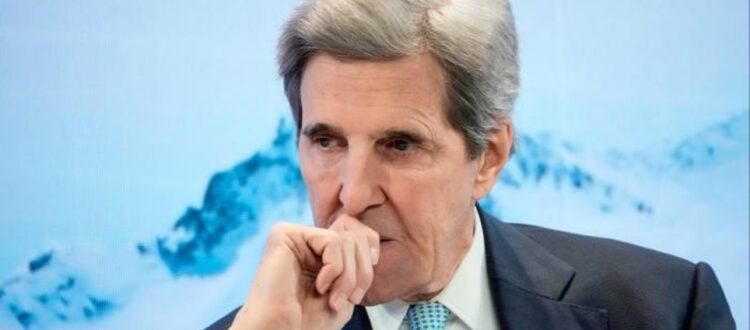COMPETING CLIMATE PLANS
From 16 to 20 January, leaders from industry and politics met in Davos, Switzerland, for the annual winter summit of the World Economic Forum. The title of this year’s edition was ‘Cooperating in a Fragmented World’, with a direct reference to the Russian-Ukrainian conflict and its geopolitical consequences.
In addition to the energy crisis, rising inflation and the potential crisis in household consumption in the main European economies (note the visibility given to the climate-food-energy nexus), the focus of the debate was the return to a poorly integrated and over-competitive approach to climate policies, which – according to many European players – sees the United States returning to excessively protectionist positions with the Inflation Reduction Act and the related green investment plan. The plan, launched in August 2022, envisages investments in clean energy amounting to USD 391 billion and represents the largest climate plan ever adopted in US history – and in its original version (as the Build Better Act), the plan should have envisaged even bigger investments. While Biden’s plan is very good news for the climate and the US re-joining the Paris Agreement politically at the beginning of 2021, according to many investors present at Davos, it poses competitive risks for many European companies given certain measures and incentives, for example in the form of tax credits to safeguard US automotive electric companies at the expense of European ones.
The French Minister for the Economy and Industrial Sovereignty, Bruno Le Maire, intervened to dampen the spirits. He emphasised that the current trade tensions between the United States and Europe over green policies can only result in greater competition (here understood in a positive way) in a context of political-economic collaboration and partnership. In this sense, according to Le Maire, it is therefore urgent for Europe to invest in hydrogen, semiconductors (produced almost exclusively in Taiwan and for years at the centre of US-China political tensions), photovoltaic panels, production from renewables and nuclear technologies, with a view to a coordinated response to the American challenge. European Commission President Ursula Von der Leyen intervened in similar tones on the issue, specifying that in a context of strong investment, albeit within a framework of uncertainty, the European Union must first and foremost invest in its battery production chain, for which it currently depends almost exclusively on Chinese production.
Among the many panels, the controversy over the presidency of COP28, entrusted by the United Arab Emirates to Sultan al Jaber, Minister of Industry and CEO of the Abu Dhabi National Oil Company (ADNOC), the emirate’s leading oil company, also found its place. This is the first time in history that the chairmanship of a climate COP has been entrusted to an oil CEO and this has caused a cross-section of discontent in recent weeks, from politics to activism. The US Special Envoy for Climate Change, John Kerry, who was present at the Davos summit, defended the choice of the Gulf allies by saying that “you shouldn’t judge a book by its cover”, that al Jaber is an experienced politician and businessman who was the first to initiate massive diversification and decarbonisation plans for the Emirates economy in recent years and that he could, therefore, be a surprise in the unambitious context of a COP led by a petrol-state. A reassuringly optimistic vision not shared, however, by the world of activism.
Noteworthy, on the side-lines of the CEO discussions, were some moments that featured well-known faces from climate activism, science and politics, starting with the presences of Greta Thunberg (who protested against climate inaction together with other activists from around the world), Faith Birol, Executive Director of the International Energy Agency, Marina Silva, Minister of the Environment of the new Brazilian government led by Lula, Sherry Rehman, Climate Minister of Pakistan (protagonist in the affair that led to the approval of the Loss and Damage Fund at COP27). At the heart of the debates was the need for the world of finance and international capital to contribute massively to the ecological transition, avoiding excessive greenwashing practices and, as Special Envoy Kerry emphasised in a heartfelt appeal, providing climate finance with what has been lacking most in recent years: ‘money, money, money’. Structured discussions on the restructuring of multilateral development banks as initiated a few weeks ago in Egypt at COP27 do not seem to have taken hold, at least in Davos. Probably the investor-political mix was not the right context and probably the topic is still not seen as a priority outside the bubble of negotiations.
However, the main issue that this Davos edition leaves on the table for the coming years remains the potential ‘green’ trade war between the United States and the European Union. Uncomfortable warnings at the level of Euro-Atlantic relations. It is no coincidence that the French Minister immediately wanted to act as peacemaker, difficult to read for automotive sectors already undergoing major restructuring and pressurised by Chinese competition (also in terms of vehicle sales, not just batteries), arrived at the wrong geopolitical moment. If politically there should be no real risk of a cooling of relations between the democratic administration in Washington and the European chancelleries on a purely commercial basis, it is now up to the various governments to work to find corrective measures that are attentive to the needs of the world of work and production – always with a view to transition, of course – so as not to further complicate an international framework that is already under great stress.
Article by Jacopo Bencini, Policy Advisor and UNFCCC Contact Point

